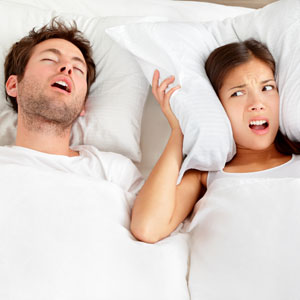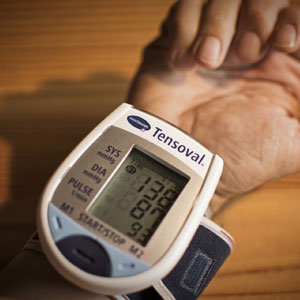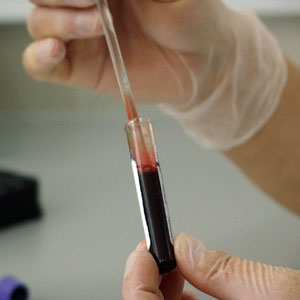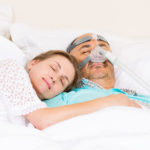Page Contents
Do you toss and turn all night long in bed? Do you feel exhausted in the morning even if you feel like you slept like a baby through the night? Do people tell you that you snore loudly?
If you answered yes to any or all of these questions, you may have a sleep-related problem. Keep on reading this article. Below we will talk about sleep disorders symptoms, types, causes, diagnosis, treatment — just about everything you need to know so that you may finally enjoy some much-deserved sleep.
Different Types, Different Symptoms
Before we begin tackling some of the most important matters concerning sleep disorders understanding what it is, is something that we should talk about.
So what’s sleep disorder?
Put simply, it’s any condition that can cause a change in the way a person sleeps. It can leave him or her sleepless, waking up several times throughout the night, and feeling unrefreshed the next morning. It can also deprive the brain and organs of oxygen, such as in the case of sleep disordered breathing, which is a dangerous matter!
There are actually many different types of sleep disorders. In fact, about 80 of them are in existence. However, there are sleep disorders that are more common than the rest.
 Here are some of the most commonly encountered types of sleep disorders:
Here are some of the most commonly encountered types of sleep disorders:
- Insomnia. Because it’s so common, everyone has probably experienced insomnia at least once in his or her lifetime. Some of the symptoms of insomnia are difficulty falling asleep, waking up several times during the night, and waking up early.
- Sleep apnea. There are two main types of sleep apnea. One of them is called obstructive sleep apnea which is more common than the other. Just like what the name says, it’s a sleep disorder in which the airway is partially or fully blocked while the person is asleep. The other is central sleep apnea which is due to a cessation of the respiratory drive. Some of the symptoms of sleep apnea include snoring and waking up having shortness of breath.
- Restless leg syndrome. Also called RLS for short, it is characterized by the presence of weird sensations in the legs and sometimes arms, too, at night that can be relieved by movement. Actually, aside from being a sleep disorder RLS is also regarded as a neurological issue.
- Narcolepsy. A rare type of sleep disorder, narcolepsy presents itself as excessive daytime sleepiness that’s very hard to fight off. This is true even if the person had plenty of sleep the night before. The trouble with narcolepsy is that it can strike without warning and at any given time, including while the individual is driving a car or crossing the street.
- Sleep paralysis. The name makes it clear what this type of sleep disorder is: it leaves the person unable to move or speak. It happens while the individual is transitioning from being asleep to being awake.
- Jet lag. What a lot of people who travel and cross multiple time zones experience is regarded as a form of sleep disorder. A type of temporary sleep problem, jet lag actually falls under the category of circadian rhythm disorder. Another example of a circadian rhythm disorder aside from jet lag is what’s referred to as shift work sleep disorder. SWSD for short, it’s common among those whose work hours overlap with the usual sleep period.
Because there are different sleep disorders around, treatments tend to vary. It’s important to first identify the type of sleep-related problem the person is facing in order for the right treatment approach for it to be determined. Later on in this article, we will discuss the various treatment options for sleep disorders — so don’t stop reading now!
Usual Causes of Sleep Disorders
When it comes to dealing with sleep disorders causes have to be identified. That’s because knowing the roots is essential for effective management of the resulting problems, regardless of whether they are treated with medications or via all-natural remedies, or both.
 Let’s take a quick look at some of the most common root causes of sleep-related problems:
Let’s take a quick look at some of the most common root causes of sleep-related problems:
- Environmental issues. Believe it or not, something as simple as residing next to a very busy street or sharing the bedroom with someone who snores loudly is enough to leave a person battling a sleep disorder.
- Too much stress. Sleep specialists confirm that leading a very stressful life and failing to deal with excessive amounts of stress at the end of the day is one of the main causes of acute or short-term insomnia.
- Unhealthy lifestyle choices. Smartphones, laptops and TV sets emit blue light that can wreak havoc on the sleep/wake cycle, and that’s why experts highly discourage everyone from using these gadgets at bedtime.
- Psychiatric disorders. These days, millions of people from all over the planet are suffering from anxiety and depression, both of which can have various complications such as sleep disruption.
- Chronic or acute pain. Naturally, experiencing joint pain, tingling sensations in the extremities, heartburn or a pounding headache through the night can make it extremely challenging to take a trip to dreamland.
- Medical conditions. A sleep disorder is a medical issue that can stem from another medical problem, and some examples of those include cardiovascular disease, kidney problems and respiratory diseases like asthma.
Because there are many different things that can cause sleep disorders to come into being, determining the one that’s to blame is a definite must so that the most suitable treatment mode may be planned and executed. In some instances, dealing with the source is more than enough to put the sleep-related issue to an end.
Getting the Problem Dealt With
Because sleep disorders can negatively impact the quality of life and give rise to some serious medical problems that can range from hypertension to diabetes, it’s definitely a good idea to have them dealt with as soon as possible. The earlier the necessary steps are taken, the farther a person’s overall health is from harm.
The good news is that treatment for sleep disorders exist. If truth be told, it comes in a variety of forms. The right one for the job will depend on certain factors such as the type of sleep problem that’s in existence, the preference of the individual who is suffering from it, and what the doctor or sleep specialist deems necessary. In some cases, a combination of various treatment approaches is recommended.
 Here are some of the most common ways to manage or put an end to sleep disorders:
Here are some of the most common ways to manage or put an end to sleep disorders:
- Lifestyle changes. More often than not, sleep-related matters can be sorted out with something as simple as doing some changes in one’s lifestyle. Someone who is hooked on coffee and cigarettes may be advised to cut down on or completely eliminate intake of coffee and smoking. Reducing stress and anxiety is usually recommended for someone who is leading a really stressful life or has a lot of anxious thoughts.
- Talk therapy. Speaking of stress and anxiety, an effective drug-free remedy for them is cognitive behavioral therapy (CBT) or more commonly known as talk therapy. When it comes to managing certain root causes of sleep disorders psychology experts can lend a hand. Based on numerous researches and personal experiences, too, results can be obtained as CBT helps to deal with the psychological causes of sleep-related difficulties.
- Sleep medications or devices. When dealing with insomnia, there are so many medications that may be taken to promote sleep. Some of them are prescription while others are over-the-counter (OTC) such as antihistamines. There are also supplements available like melatonin, chamomile and valerian root. In some cases, the use of devices like a continuous positive airway pressure (CPAP) machine or mouth guard may be prescribed.
- Undergoing the knife. Earlier, we talked about obstructive sleep apnea. There are instances in which surgery is the solution for it especially if conservative treatments fail to yield favorable results. Uvulopalatopharyngoplasty (UPPP) is a form of sleep apnea surgery in which the tissue, such as the tonsils, that’s blocking the upper airway while the person sleeps is surgically removed and repositioned.
- Tackling the root cause. We mentioned above that sometimes sleep disorders can be blamed on underlying medical conditions. If such is the case, dealing with the causative factor is the step that needs to be taken to put the sleep issue to an end. For instance, being overweight is one of the causes of sleep apnea. It’s for this reason exactly why a doctor may encourage an obese patient who is complaining of a sleep disorder to shed off excess pounds.
No matter the sleep disorder, there are ways to have it managed or treated. Whether the patient prefers to take medications for sleep disorders or go the all-natural route, a solution is highly accessible. It’s important for the person who’s having trouble with catching some shut-eye to work with his or her doctor for results to be enjoyed.
 Here are some of the problems that may stem from failure to get a good night’s sleep each time:
Here are some of the problems that may stem from failure to get a good night’s sleep each time: The following are some of the most commonly utilized tests for diagnosing sleep disorders:
The following are some of the most commonly utilized tests for diagnosing sleep disorders:



